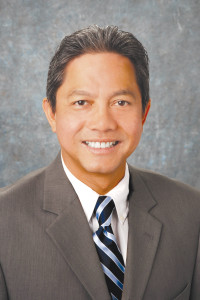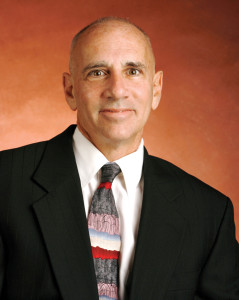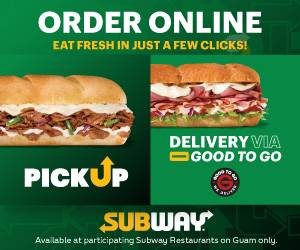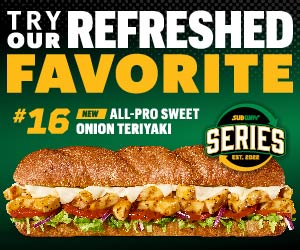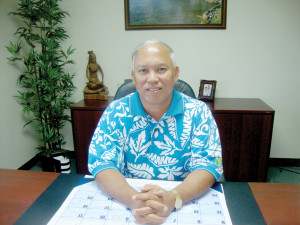
Jose “Joe” C. Ayuyu
By Tammy Jo Anderson Taft
Jose “Joe” C. Ayuyu knows how it feels to liquidate all of his assets in pursuit of a dream. More than 20 years ago, he began pursuing his lifelong dream of running his own business. He started by attending college in Hawaii, working for years in different industries, building assets and sharpening his financial skills.
Then, in 1992, he decided it was time to take the leap of faith he had been preparing for his entire life. He was ready to bring one of the world’s most famous restaurants to Saipan.
“Before I opened the McDonald’s restaurant on Saipan, it was difficult at first,” Ayuyu says. “Starting the franchise meant that I needed to have a lot of cash up-front. I learned that I could borrow some of the money to open the business, but a majority of the money would need to come from me.”
Ayuyu is one of the many entrepreneurs in the Mariana islands who have worked to bring national brands to the area through franchising agreements. Franchise agreements vary in complexity, startup costs and royalty fees, but one thing is certain, they are a key part of the ever-evolving economies in Guam and the Northern Mariana Islands.
During the past 60 years, the region has seen a wide variety of success with franchises. Some have come and gone. Others came and enjoyed initial success but sputtered and died. Some franchises have weathered many storms and seen success and growth for years.
With so many different outcomes for various franchise ventures in the Marianas, the obvious question is: What causes a franchise to make it or break it in Guam and the Marianas?
Experience, financial resources and a good business plan are three of the big things that can make or break a new business trying to get a franchise agreement, Guam Premier Outlets General Manager Monte D.M. Mesa says. Twelve of the 75 tenants at GPO are franchisees.
There are many types of franchises including restaurant, retail and service businesses. “With that much variety, a new businesses looking to enter a franchise agreement must be able to show the franchisor the brand will “be right for Guam’s market,” Mesa says. Even if a company can prove to a franchisor that it would be successful in Guam’s market, Mesa says the company must have a “good banker” to support the company through its growth.
“It’s one thing to have the passion to go after a certain franchise and be determined to make it work, but it’s also important to have backup financial resources to make sure they can carry you through the growing stages of your business,” he says. He added that the lack of financial resources has been the root cause for some of the failed franchises in the region.
Rudolph Rodolfo Jr. has worked with the Burger King franchise for 34 years. During the past quarter of a century he has worked with the company in Guam. Now, as managing director for the successful franchise, he has seen many other franchises come and go.
“You need a lot of capital to start any restaurant, especially a brand,” he says. “That’s the first hump. When you come into the market, you have to have a presence. You can’t come, open one location with one small presence. You have to come in and declare that, ‘We are here. We are open, and we are ready to grow.’”
To help in this area, the Guam Economic Development Authority has a partnership with banks and credit unions to administer loan programs for small-business ventures. The loans can be used for start-up costs, capital, franchise fees and even equipment. The maximum loan amount is $200,000 and provides the bank with the security to approve the loan it may normally disapprove.
Getting the capital was one of the hardest parts of the process for Ayuyu. He sold his home and liquidated all of his assets to qualify for a franchise agreement with McDonald’s. After getting his financial backing in order, he had to undergo intense training in working at a McDonald’s.
“I would spend my weekends flying back and forth to Guam to train with their management team,” he says. “I had to work from the ground up. I had to be dedicated to the business.”
Understanding a business from the ground up is key to running a successful franchise, says Lars Peterson, managing director of Guam Fast Foods. Last year his company bought the franchise agreements for KFC in Guam. Prior to this endeavor, Peterson worked with KFC in Hawaii and for the same main franchisor, Yum Brands, in the Philippines.
“If you don’t know anything about that business, you should go and work for someone who has that franchise already so you really understand it,” he says. “Working in restaurants is a tough business. You have to understand it well. I would highly recommend you invest at least six months learning about the company you are interested [in] doing business with.”
Peterson has worked with franchised companies for almost 39 years and says that he only felt confident he could run a franchise himself after about 20 years.
He also recommends doing a lot of research before investing in a franchise, as there are various benefits and drawbacks of working with an established franchisor, and anyone looking to get into the business needs to understand those realities.
One of the benefits of a franchise agreement is the name recognition and product awareness associated with bigger companies or products. That recognition is reinforced when people travel to other places with the franchise or see national advertisements on television for a product they can now get through a local franchise.
For example, Subway runs numerous television ads nationally. Because of this, the local Subway franchise only runs print and radio advertisements, according to Gary Schiff, director of brand management for Subway Restaurants in Guam, Saipan and AAFES and NEXCOM Japan. Subway was first franchised in Guam 25 years ago, and now there are 14 Subway franchises in Guam and three in Saipan.
Advertising and rules that help ensure success are advantages to franchise agreements, Schiff explained. Those who follow the rules tend to do better with franchising than individuals who may want to, unsuccessfully, try their own methods. It takes a good combination of following the franchise rules, having good management and a good location to make a franchise enterprise work, he says.
Starting with a strong presence and advertising campaigns helped Burger King thrive in Guam. The franchise is owned by Baba Corp. As a larger company, it can share marketing ideas used by its other companies and create strategies that include more areas of business, Rodolfo says.
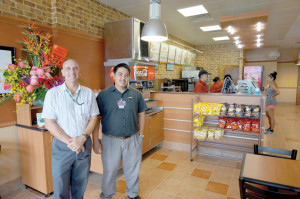
Gary Schiff, director of brand management, Subway Restaurants – Guam/Saipan and AAFES and NEXCOM Japan, and Jerome Bundoc, manager of the Barrigada and Agana Shopping Center Subway stores, at the opening of the newest Subway store in Agana on July 29. Subway was first franchised in Guam 25 years ago, and now there are 14 Subway franchises in Guam and three in Saipan.
Due to the restaurant’s success, the company plans to open another location in Hagåtña in 2015. “The sign will be going up soon,” Rodolfo says.
Localizing a brand’s menu offerings to Guam residents’ palate is also part of the equation. Peterson says KFC allows local franchises to have about 15% of their menus localized. This helps keep customers happy and has made KFC a part of Guam for the past 40 years. The business has become more like a local business for Guam instead of a national chain. This is evident in the fact that Thanksgiving will be the top sales day for local KFC restaurants.
“In the U.S. mainland, KFC is closed,” Peterson says.
Although limited flexibility may be a benefit for some businesses, one benefit of a startup company having a franchise agreement is the set of procedures and recipe for success that come with the agreement. Some agreements may also include equipment or training to help the business start out on the right foot.
But those benefits come with various costs.
Robert F. Kelley, was part of the RadioShack franchise in Guam from 1998 to 2001.
“The advantage of RadioShack was the name recognition of the consumer and a good product line,” he says. “However because the margins of national advertised pricing did not cover freight and Guam business costs, the company could not sell profitably. Margins and business models don’t always accommodate the cost of business and island environment.”
Schiff agrees that it is difficult for local franchises to match the price points advertised nationally. Despite that, he says it is easier for Subway to do island-wide promotions that are somewhat similar because one individual owns all the franchise rights to Subway in Guam.
This has also helped Subway Investments Corp. develop a way to bring training and franchise support much closer than the U.S. mainland.
The corporation is a “development agent office” for the Subway franchise, Schiff explained. This means the Guam office receives a percentage of royalties for helping develop units, resolving issues, offering training and helping the franchise expand in the Micronesia region. The company is working on plans to develop Subway restaurants in Palau, the Marshall Islands and Pohnpei.
For many franchises, having support for Guam units can be tough, especially if there is only provided support from locations out of the U.S. mainland. Some smaller franchises may not have the ability to fly to Micronesia to support new outlets, Peterson says.
 Another aspect that makes running a franchise more difficult in Guam is the time it takes to ship brand-specific items across the Pacific Ocean. This can be especially difficult with restaurant franchises as food freshness is a key component to success, Peterson says. At times, this can require months of pre-planning.
Another aspect that makes running a franchise more difficult in Guam is the time it takes to ship brand-specific items across the Pacific Ocean. This can be especially difficult with restaurant franchises as food freshness is a key component to success, Peterson says. At times, this can require months of pre-planning.
Working with a franchise on a larger economy of scale makes food items more affordable for owners, Ayuyu says. This has helped keep McDonald’s in Saipan in businesses successfully for more than 20 years, and the future is bright for him and his wife.
Mesa says it is good for GPO and the island to encourage more folks to follow in entrepreneurs like Ayuyu’s shoes.
“It’s good that we try to encourage out of the University of Guam, especially business majors, who are looking to be entrepreneurs to look at that channel,” Mesa says. “Franchising would be a good thing for young people who are looking at developing their career or setting their own career path.”
Jamaican Grill works to become a franchise


